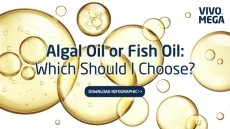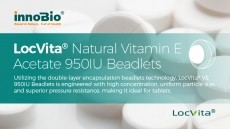No cancer risk from folic acid supplementation, says meta-analysis

Findings from the a new meta-analysis on the link between folic acid and cancer suggest that short-term use of supplements is unlikely to substantially increase or decrease overall cancer risk, and has little effect on risk of developing any specific cancer.
Writing in the Lancet, lead author Dr Robert Clarke from the University of Oxford, UK, and his team assessed data from almost 50,000 people who had taken part in 13 clinical trials involving folic acid supplementation – finding that those who took daily folic acid for 5 years or less were not significantly more likely to develop cancer than those who took placebo.
"The study provides reassurance about the safety of folic acid intake, either from supplements or through fortification, when taken for up to 5 years,” said Clarke.
The lead researcher said the findings are reassuring for national fortification programmes, which involves much lower doses of folic acid than studied in the supplementation trials.
"Both the hopes for rapid cancer prevention and the fears about rapidly increased cancer risk from folic acid supplementation were not confirmed by this meta-analysis,” said Clarke.
"It remains to be seen whether any beneficial or harmful effects on cancer incidence will eventually emerge with even longer treatment or follow up,” he cautioned.
Folate debate
Achieving adequate folate status is known to be important in the prevention of megaloblastic anaemia, and the risk reduction of neural tube defects (NTDs) in newborn babies.
Consequently, strategies focused on fortification of food products with folic acid have been implemented or advised in several countries.
Whilst traditionally seen as safe, recent research has suggested that excessive intakes of folic acid could lead to certain health problems including the masking of vitamin B12 deficiency in the elderly and a higher risk of other conditions such as cancer, tumour promotion, epigenetic hypermethylation, miscarriages, and multiple births.
Study details
Clarke and his team from the B-Vitamin Treatment Trialists' Collaboration conducted the meta-analysis to include all 13 large randomised trials of folic acid supplementation (alone or in combination with other B vitamins) up to the end of 2010.
They found that those who took daily folic acid for 5 years or less were not significantly more likely to develop cancer than those who took placebo, with 1904 (7.7%) new cases of cancer reported in the folic acid groups and 1809 (7.3%) in the placebo groups.
Even among those with the highest average intake of folic acid (40 mg per day) no significant increase in overall cancer incidence was noted, they said.
What is more, there was no significant difference between folic acid and placebo groups in the number of participants experiencing colorectal, lung, breast, prostate, or any other type of cancer.
Importantly, Clarke said, there was also no evidence that the risk of developing cancer increased with longer folic acid treatment. However he added that it ‘remains to be seen’ whether longer term trials could show additional benefits of risks to folic acid supplementation.
















